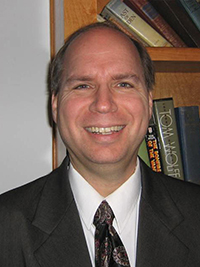When picturing key figures from the civil rights era, the name T.R.M. Howard may not rise to the forefront of your mind. But for Dr. David Beito, Professor of History at the University of Alabama, he is a cornerstone figure of the movement. In a recent episode of Ideas in Progress, Dr. Beito stated about T.R.M. Howard:

“He was not on the periphery of the civil rights movement. He was not a dissident in the movement in the sense of being some sort of outlier. He was a leader. He was a key leader in the years before Martin Luther King. He was out there on the front lines doing things in a very hostile environment that were really quite remarkable.”
– Dr. David Beito
Dr. Beito and his wife, Dr. Linda Royster Beito, co-authored the book T.R.M. Howard: Doctor, Entrepreneur, Civil Rights Pioneer in which they tell the fascinating story of the respected surgeon, integral black community leader, and successful businessman. Ideas in Progress host, Dr. Anthony Comegna, inquired about doctors’ process for telling this story and writing the definitive biography on T.R.M. Howard.
Dr. Beito describes how serendipitous it was that Howard’s story fell into his lap through research he was working on for a separate book. From there, it became a steady flow of information.
“[I had] never written a biography before. [My wife] had not. And so, it was a different experience… We would try to track him every year. What was he doing at this point and who was he meeting? And what efforts was he making? And how was it all interconnected? A lot different than writing a typical history book, but fortunately, Howard was all over the place. He was all over black newspapers. There was an FBI file on him. He always stood out everywhere he went.”
–Dr. David Beito
Howard certainly was “all over the place,” as Dr. Beito goes on to describe the Montgomery Bus Boycott and Howard’s connection. He sets the stage, that three days prior to Rosa Parks’ refusal to give up her bus seat, she attended a speech given by Howard and the then, relatively unknown, Dr. Martin Luther King Jr.
“Howard gives a speech in Montgomery on the Emmett Till case and he gets a sellout crowd at the Dexter Avenue Baptist Church in Montgomery. His host is an unknown minister, Martin Luther King Jr., and Rosa Parks is in the audience. It’s a big event. It’s on the front page of the local black newspapers. It’s still on the newsstands three days later when Rosa Parks makes her decision to refuse to give up her seat. She said later she was asked, ‘Well who were you thinking of?’ She said, ‘I was thinking of Emmett Till.’”
The episode goes on to discuss Dr. Beito’s book and the life of T.R.M Howard. To hear more about Howard’s story, download this episode of Ideas in Progress on iTunes. Visit our website for more information on IHS faculty and graduate programs and funding opportunities.
